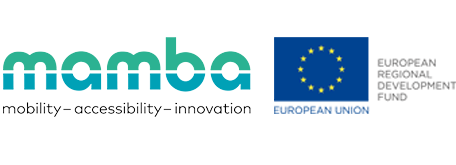The first Regional Steering Group meeting in Seinäjoki
MAMBA partners in South Ostrobothnia have held the first Regional Steering Group meeting on the 25th of June 2020. The Regional Steering Group (RSG) acts as the Mobility Centre in South Ostrobothnia, its role being mainly to share information and expertise, making recommendations and coordinating the logistics of the mobility services in the region.
The municipalities and joint municipalities are responsible for the actual organization of transportation services. The Regional Council of South Ostrobothnia leads the group and acts as the main organizer, guaranteeing the establishment and long-term operation for the MC. The Regional Council is responsible by law for the regional transport system planning, e.g. infrastructure and transport services, but not for the implementation and funding.
The meeting was held online, and there were 28 participants. Almost all municipalities from South Ostrobothnia were represented, as well as the Finnish Social Insurance Institution, The hospital District of South Ostrobothnia and the Centre for Economic Development, Transport and the Environment. This meeting was the first one, aiming mainly to present the role of the group and its members. A working group of 8 members was also set up at the meeting. All participants in the meeting had the opportunity to express their willingness to participate in the working group. Its purpose is mainly to prepare matters for the Regional Steering Group. This meeting provided positive indications for cooperation in transport planning in the South Ostrobothnia region. The next meeting will take place in August, and we hope that this cooperation will eventually succeed in building a joint transport service unit in the South Ostrobothnia.


























